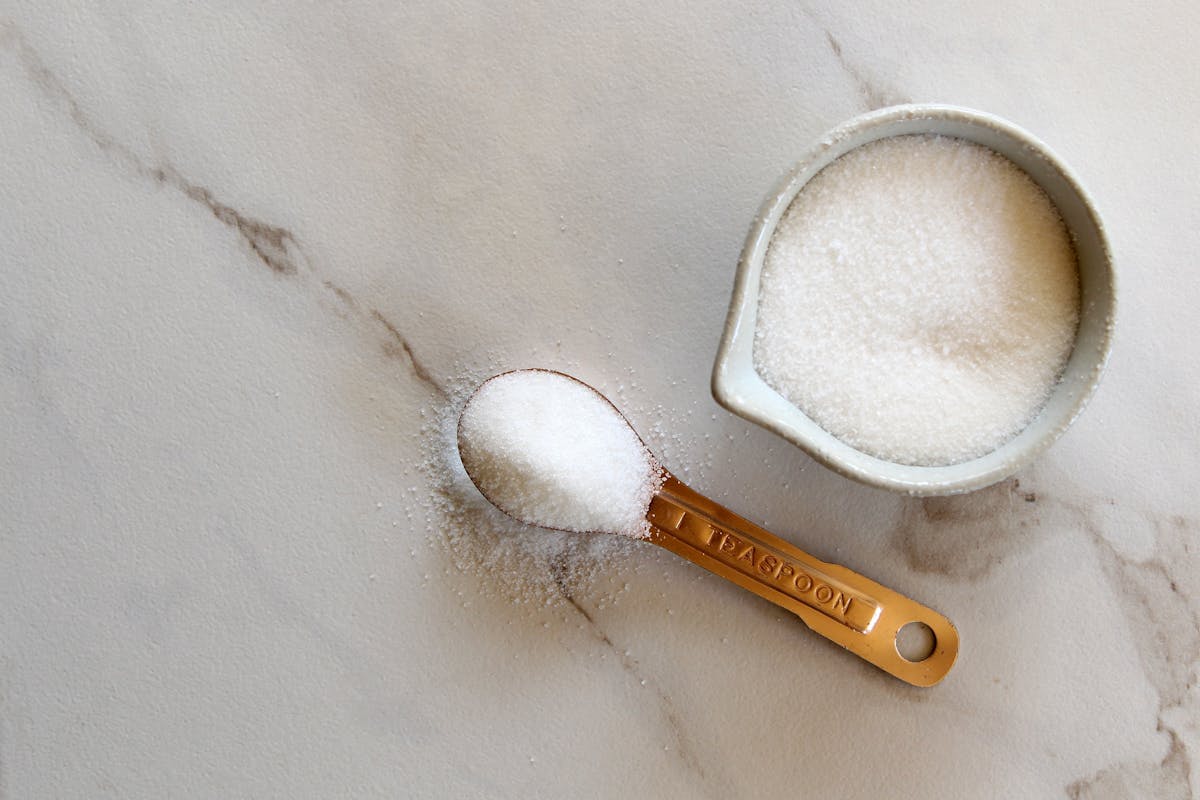A common pitfall for many people is that gnawing craving for sugar. They can’t stop thinking about that candy, donut, cookie, ice cream, chocolate bar… Or how about that carb craving of a bagel, bowl of pasta, or baguette?
Key Ways To Stop Sugar Cravings
Lifestyle
9 Min Read

Get hair, health, and science news delivered right to your inbox.

Medically Reviewed by
DR. MELISSA ANZELONE, N NDWhen these cravings hit, they usually hit hard. It’s easy for people to find themselves binging on anything and everything to curb that craving — and unfortunately, these cravings can cause you to consume excess amounts of sugar and commonly lead to overeating as well, triggering weight gain.
What causes sugar cravings?
If you have those frequent food cravings, you’re not alone. The majority of the population have food cravings that happen with frequency (i.e. several times weekly), and 80-85% of those craving episodes end with the consumption of the specific food or something similar.
Craving carbohydrates is a seemingly common hankering for many people, and it is important to realize that all carbs are comprised of sugar — some more than others, depending on the type of carbohydrate it is. (For more information on the different types of carbohydrates, click here.)
We’ve all encountered those energy slumps, usually in the early- to mid-afternoon, where we start getting tired and need something to get us through the rest of the day. Unfortunately when you’ve hit the wall and need that pick-me-up, you usually go for the quickest sugar boost — the cookie, the donut, something usually with no real nutritive substance. When it hits your system in a matter of minutes, you get that energy burst thanks to the “sugar high” and can continue to push through…. or can you?
In addition to messing with your blood glucose (blood sugar) as well as insulin (a hormone which signals cells in the body to soak up blood sugar) levels, this snacking behavior only makes you crave more sugar in the long run. It can also lead to the potential for health issues, such as diabetes or cortisol (stress hormone) dysregulation.
As there is no real nutritive substance to maintain that sugar you have consumed, it gets burned through very fast, leaving you craving something else almost immediately. Consuming these empty sugar calories usually leads to you eating more than you normally would or should. Generally, this is due to you eating very quickly during these moments, not taking the time to taste your food and allow proper digestive processes to take place. Consequently, you don’t hear your body when it says it is full. Then, you don’t stay full for very long because of the lack of nutrients in the sugar rich-food you have consumed, so you find yourself hungry again and craving more sugar to get that “quick fix.” Before you know it, this process becomes a vicious cycle throughout the day.
How stress affects sugar cravings
Sugar cravings can be further stimulated or compounded by stress. Stress is a common culprit in influencing dietary choices and eating behaviors. Chronic stress especially has been connected with weight gain and obesity.
Remember cortisol? Well, this stress hormone can also trigger appetite stimulation as well as increases in food intake. Interestingly, sugar cravings may not be as simple as just wanting that “something sweet.” A study suggested that cortisol assists in the regulation of feeding behavior and choice, and higher cortisol levels forecasted both binge-eating and stress-induced eating. Dopamine, a neurotransmitter which transmits signals between the body and the brain, plays a significant part in a person’s feelings of pleasure, reward, and motivation. It has been noted that dopamine is released as a consequence to tasting very palatable foods, resulting in the conjuring of certain feelings, including a heightened food reward. Cravings may be associated with your body’s desire for the dopamine release, knowing it will “feel good” after having eaten the particularly craved item. This could be a reason why you reach for that sugary food.
What can I take to stop sugar cravings?
Sugar imbalance can lead to things like decreased nutrient utilization and hormone imbalance, which can then, in turn, be reflected in your hair health. But Nutrafol’s Sugar Balance can help. The ingredients in Sugar Balance can help maintain a healthy glucose metabolism. As blood sugar metabolism improves, a decrease in those pesky sugar cravings may be observed.
Because stress has been linked to sugar cravings, also try to reduce your levels of stress. One traditionally cost-effective tool to try out is meditation. There are so many forms of meditation available, from breathing exercises, to mindfulness, to mantras, and many more. In fact, mindfulness meditation has a long-standing history of being utilized to help address and manage cravings. You can also look into Nutrafol’s Stress Adaptogen, which has ingredients that assist in supporting a healthy stress response and subsequently help lend further support to that healthy hair cycle.
Overcoming sugar cravings can be a challenge, but understanding why they may be happening can, in and of itself, be helpful in taking steps to curb them. Just remember the many supportive measures that are available to you.